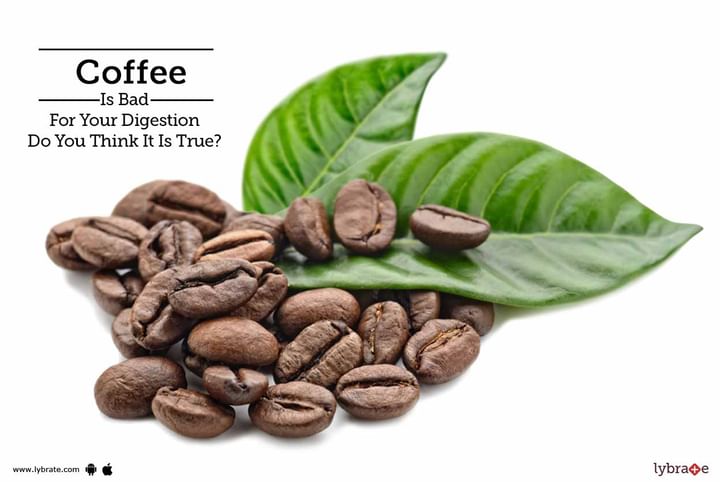Coffee Is Bad For Your Digestion - Do You Think It Is True?
The quote 'a good day starts with coffee' suits a lot of people who love nothing more than a cup of coffee every morning. However, your morning tryst with a cup of coffee might not be a very healthy habit. Believe it or not, addiction to caffeine (in the form of coffee) is as harmful as addiction to any other drug. In fact, caffeine is a legal drug that slowly and gradually damages your gastrointestinal tract.
Here are the negative effects of coffee on your digestive system:
- Increases Acidity: Coffee is known to contain different kinds of oils, acids and caffeine. These compounds have an adverse impact on the digestive system. The stomach and intestinal linings can get damaged due to the over-consumption of these compounds in the form of coffee. Moreover, as you take coffee, your stomach produces more hydrochloric acid for digestion. This causes acidity and hampers the HCL levels altogether. When we take coffee regularly for years on empty stomach, our body's capacity of producing the proper amount of HCL gets hampered. Often, HCL production reduces over time. This leads to indigestion of other food items and causes flatulence and produces unwanted gases as your body is unable to break protein and fat properly.
- Ulcers and Irritable Bowel Syndrome: Doctors believe that coffee acts as an irritant for patients of Irritable Bowel Syndrome (IBS), gastritis, Crohn's disease, colitis and ulcers. Coffee is responsible for the irritation on the lining of stomach and intestine. It is also noticed that certain enzymes present in the coffee beans are also harmful to the gastrointestinal tract.
- Heartburn: Coffee is responsible for relaxing the esophageal sphincter muscle. The relaxation of this muscle hinders the process of digestion and causes acid-reflux, resulting in heartburn. It is known to have compounds that have diuretic, laxative and mineral blocking effects on the body.
- Laxative Effects: Coffee stimulates the process of peristalsis or movement of food through the gastrointestinal tract. It starts immediately after the food is swallowed by an individual. The intake of coffee catalyzes peristalsis and consequently empties the stomach even before the food is digested properly. The semi-digested food is sent to the intestine too early, causing injury to the intestine and hampering the absorption of nutrients.
- Affects Absorption Of Minerals: Caffeine reduces the ability of the stomach to absorb iron and also hinders the absorption of minerals like calcium, zinc and magnesium by the kidney. All these minerals help in digestion at different points and regulate the bowel movement.
Coffee is known to have benefits like reduction of constipation and sugar absorption. But, it also interferes with the smooth functioning of the digestive system. It has a tendency to cause stomach ache, disturb the fluid balance and the overall process of digestion. In case you have a concern or query you can always consult an expert & get answers to your questions!



+1.svg)
